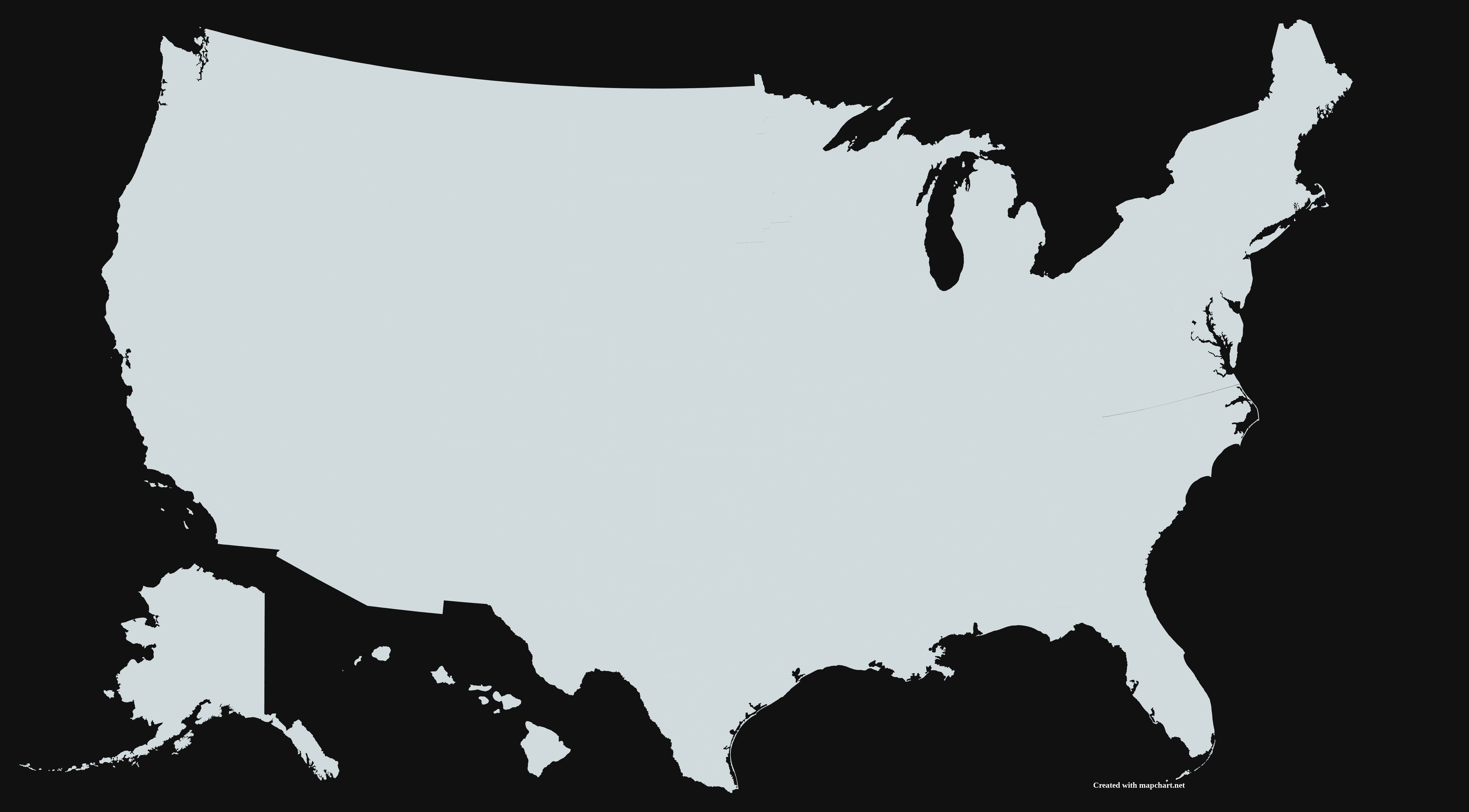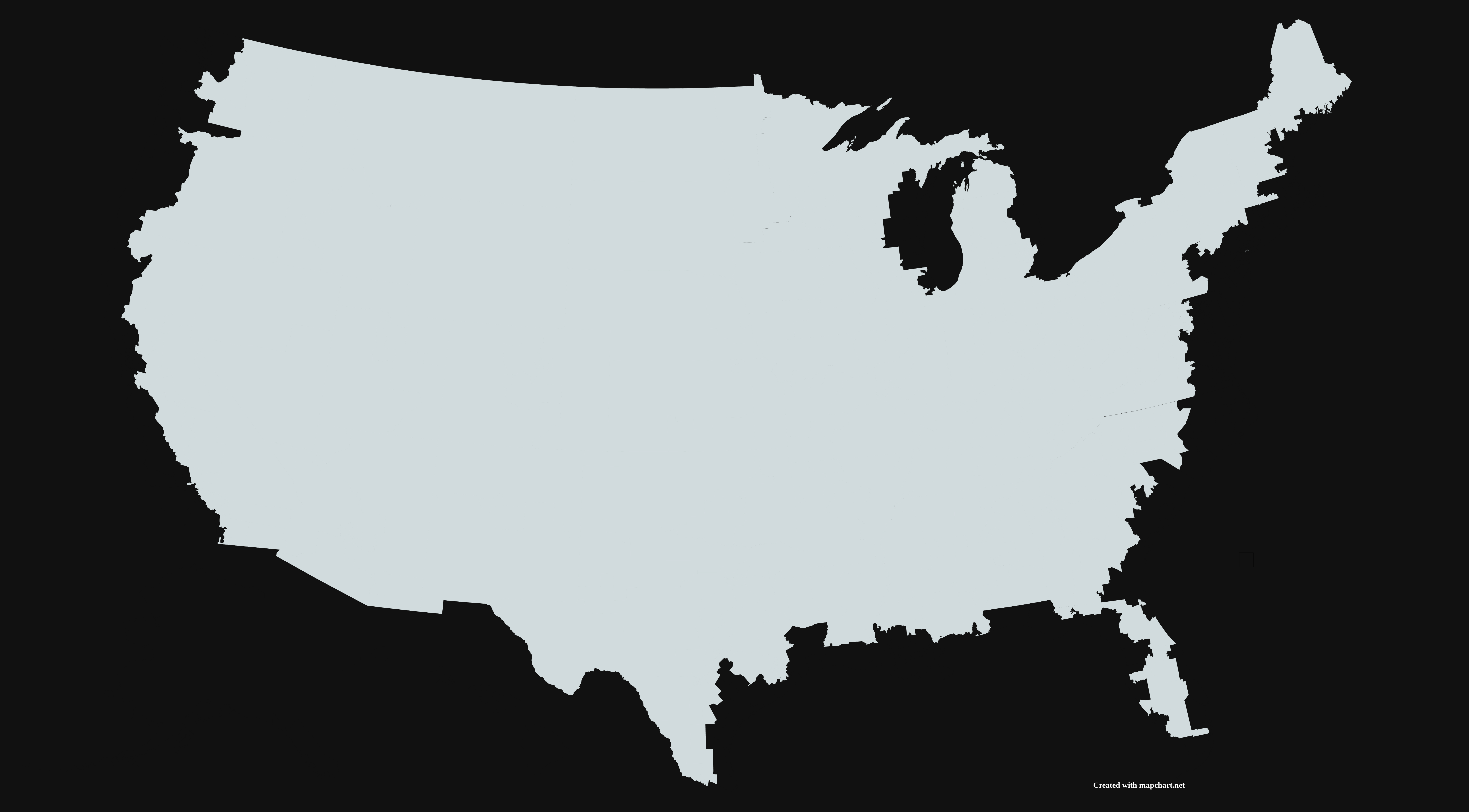Earth-1
Map

Earth-2
Map

Earth-1
History
Click cards for more information.
1776
American Revolutionary War
Citizens of the British-owned American colonies fight in and win a war for their freedom, establishing their from Great Britain in this war that defies the odds. This is the beginning of the end of the British Empire.
1787
Constitution
The newly-formed America develops and signs its second constitutional document, this time called the US Constitution (after the failure of the Articles of Confederation), that includes a Bill of Rights, a document that will be essential in upholding basic freedoms like speech, press, petition, religion, and assembly later.
1803
Louisiana Purchase
The United States purchases the Louisiana Territory from France, which includes what is now Arkansas, Oklahoma, Kansas, Nebraska, South Dakota, Missouri, Iowa, and parts of Texas, Louisiana, New Mexico, Colorado, Wyoming, Montana, North Dakota, and Minnesota.
1804
Westward
The Lewis and Clark Expedition begins, a key part of US Westward Expansion. The expedition provided new maps, discoveries, and societal information for the fledgling country, which was then able to expand its society further to the west.
1812
War of 1812
The War of 1812 is fought between Britain and the US over impressment of American soldiers, the crusade against Westward Expansion, and harassment of American trade by the British navy. The victor of this war is indecisive, but it results in a treaty and improved relations between the two nations.
1860
Secession
Eleven southern states secede from the Union and become the Confederate States of America in response to the 1860 election of Abraham Lincoln. They elect Jefferson Davis as their president and prioritize slavery and the rights of individual states as opposed to the rights of the union.
1861
Civil War
The Civil War is fought mostly over the issues of the rights of individual states and slavery following the secession of the Confederacy. The war lasts four years and the Confederacy surrenders in 1865, beginning the process of Reconstruction.
1867
Reconstruction
The Union, having won the Civil War, reconstructs the country by implementing significant civil rights reforms, including the right to vote for non-white people and the end of slavery. They use their leverage over the South to get these reforms passed as constitutional amendments.
1890
Industrial Revolution
The industrial revolution hits America in full force, industrializing farming, transportation, and textiles. This industrial revolution is a major contributor to the global climate crisis which would emerge in the 21st century.
1914
World War I
The First World War is triggered with the assassination of Archduke Franz Ferdinand. A war between Austria-Hungary and Serbia spirals out of control and leads to conflict between global powers and global alliances.
1930s
Great Depression
The Great Depression, the worst economic downturn in modern history, sends 15 million Americans into unemployment and sparked a mass migration in the US from farms to cities to find work, as farmers couldn't afford to harvest.
1939
World War II
The quest for global Nazi supremacy by Adolf Hitler's Nazi Party, which rose to power in an unstable Germany - and at an unstable time for all of Europe - comes to a head with World War II and the Holocaust, where 45-60 million people, including 6 million Jews who were murdered at Nazi concentration camps, die. Eventually, the Allied Forces win the war and the Nazis are disbanded.
1950s-1960s
Civil Rights Movement
A struggle for social justice, led by individuals like Martin Luther King, Jr., Malcolm X, Rosa Parks, and John Lewis, among others, takes place in the 1950s and 1960s and directly results in the passage of the Civil Rights Act of 1957, the Civil Rights Act of 1964, the Voting Rights Act of 1965, and the Fair Housing Act of 1968.
1967
Second American Revolutionary War
The Second American Revolutionary War does not occur on Earth-1.
1970s-1980s
Rise of "Traditional" Conservatism
In the 1970s and 1980s, amid the failure of the Ford and Carter presidencies, "traditional" conservatism begins to regain ground significantly for the first time since the New Deal. White evangelical Christians become more active in politics and oppose the ERA and gay rights, and Ronald Reagan comes to power on their back, as well as the backs of other conservatives. The Republican Party moves aggressively to oppose social progress and economic interference by the government.
1977
Constitution
The Constitution was previously signed in 1787, so this event does not occur at this point in time on Earth-1.
Mid-Late 20th Century
Cold War
Tensions rising between the US and the USSR over the differences between democracy and communism leads to a nuclear arms race, a space race, several proxy wars between the two nations, and brings the world to the brink of nuclear war during the Cuban Missile Crisis.
2001
9/11 Attacks
Nineteen militants associated with the Al-Qaeda terrorist organization carry out attacks on the World Trade Center, the Pentagon, and a failed attack on an unknown target in Washington, DC.
2017-2021
Presidency of Donald Trump
Donald Trump, an unsuccessful former businessman, is elected to the presidency in 2016 and proceeds to incompetently handle several national and global policy areas and significant crises, including the COVID-19 pandemic, the climate crisis, immigration, and social justice reform.
2021
Attack on the US Capitol
An angry mob fails to overthrow the US government and presidential transition when it attempts to attack Congress as it certifies the results of the 2020 election.
Earth-2
History
Click cards for more information.
1776
American Revolutionary War
Citizens of the British-owned American colonies fight in a war for their freedom and lose, establishing reason and precedent for a heavy British crackdown in the future. The British empire's prevalence is important for the future.
1779
Crackdown
The British force the American leaders to sign a law document that includes strict crackdown policies, including tax policies with punishments of yearslong jail sentences, a tightening of the Proclamation of 1763, and a labor policy that requires everyone to work for minimal wages.
1801
British-French Tensions
Along the colonial border, the British seek to make the French pay for their alliance with the British colonies in America. Several brawls between troops stationed there create fears of an all-out war, something neither empire wants to become involved in.
1803
France Expands West
The French army makes a push to expand westward of the Louisiana Territory, and annexes parts of what is now Texas, New Mexico, Colorado, Wyoming, and Idaho. They begin forcing Native Americans to move further west, just as the United States did on Earth-1.
1825
War of 1825
The War of 1825 is fought between France and Britain over land and territory. The aggression on the border between the British-American colonies and the Louisiana Territory escalates into fighting between the two sides. The war lasts for ten years, and Britain wins the war after conquering over a quarter of the Louisiana Territory. It's a long and bloody war, and Britain enlisted American civilians to fight with them, leading to hundreds of thousands of lives lost.
1828
Secession
The American colonies attempt to secede from Britain following the War of 1825. They declare their independence again and try to force the occupation out of the colonies. The occupation leaves and waits for backup on the water from the British Navy, while the colonies prepare for an inevitable war.
1832
War
The British assemble their forces to prepare to invade the recently-seceded America, trying to reclaim their territory. The war lasts for three years, costing thousands of lives. In the end, the British win a war between the two for the second time, bolstered by a strong navy force uncountered by the Americans.
1836
Reconstruction
The British implement stricter crackdown measures on the colonies, including a 19:00 curfew, a government enslavement policy of civilians, quartering of soldiers with internal espionage upon citizens, and forced factory work, as the empire industrializes.
1880
Industrial Revolution
The industrial revolution is in full swing, with increased factory work, urbanization, and less demand for outdoor labor. The British force all American citizens over the age of 15 that are unemployed and are not enlisted in the British military to work in a factory for little or no pay.
1914
World War I
The First World War is fought over labor rights in America. After decades of oppression by the British, American workers revolt against the British military and are backed by the French, Belgians, and Japanese, to name a few; at the same time, the British are supported by Germany, Bulgaria, and Russia, among others.
1930s
Great Depression
American workers carry out a long-planned labor strike, sending the economy into recession and plunging British-owned businesses and corporations into bankruptcy. It lasts for three years, but the British in the meantime establish restrictions on American-owned businesses, forcing American workers to return to British-owned ones.
1939
World War II
Hitler's rise in Germany is opposed by France and some of their closest allies, but without the support of the (undeveloped) US or the (autocratic) UK, the Allied Forces are crushed by Hitler's regime and Europe falls under Nazi control. Hundreds of millions of Jews are murdered across Europe as Hitler's power grows.
1963
Civil Rights Movement
Any attempted protests for civil rights are immediately shut down by the British, who take a harder-line stance when compared to their previous actions in dealing with perceived uprising by Americans.
1967
Second American Revolutionary War
American organized militias rise up and carefully overthrow the British occupation at a vulnerable point, finally gaining independence after more than two centuries of occupation.
1970s-1980s
Rise of "Traditional" Conservatism
Figures like Richard Nixon and Ronald Reagan begin calling for limited government and little social influence by government and politicians, which becomes a very popular message after two centuries of British monarchism.
1977
Constitution
Nixon and Reagan become the primary framers of the Constitution, which explicitly denies basic rights to women and minorities in America. The First Amendment's provisions regarding free speech, freedom of the press, freedom of assembly, and freedom of petition are all left out, making this section solely centered around religion. There is also no specific presidential term limit included in the document.
Mid-Late 20th Century
Cold War
With the United States now having relatively autocratic, restrictive, and illiberal policies enshrined in its Constitution, the USSR views the US as an ally and partner, and autocracy spreads under their influence. The two countries still have (relatively insignificant) differences over their economic systems, but never view each other as adversaries.
2001
9/11 Attacks
Twenty-seven militants associated with the Al-Qaeda terrorist organization carry out attacks on significant targets in Britain, France, and the USSR, ignoring the US due to its relative minority when compared with the rest of the developed world.
2005-2025
Presidency of Donald Trump
With a lack of term limits on the presidency, Donald Trump, an unsuccessful former businessman, is elected in 2004 and stays in power until 2021 with mostly unified Republican control of each of the legislative houses. Citizens try to oust him in the 2020 elections, but a mob overthrows the government and successfully restores him in power in early 2021.